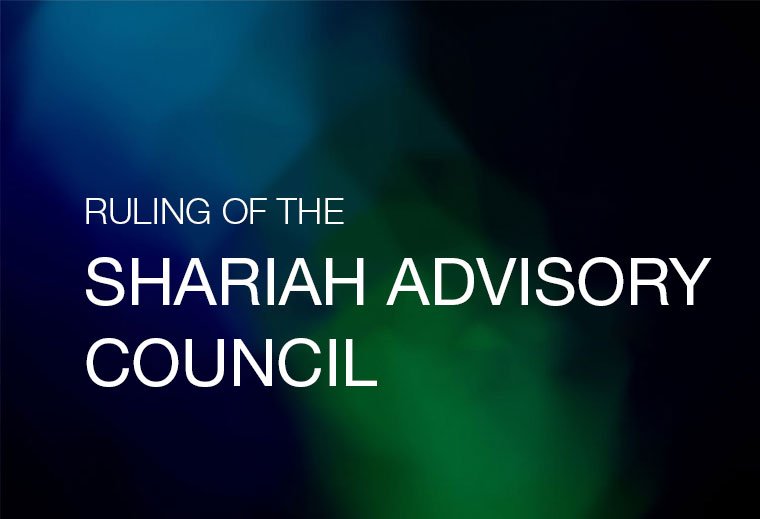Bitcoin and other cryptocurrencies have often been met with skepticism in Islamic finance due to concerns about compliance with Sharia law. However, Malaysia’s Sharia Advisory Council has officially endorsed Bitcoin as Sharia-compliant, highlighting its potential as a legitimate investment asset and a driver of economic growth.
Sharia Compliance and Cryptocurrency
The chair of Malaysia’s Sharia Advisory Council at the Securities Commission of Malaysia (SC), Datuk Dr. Daud Bakar, has confirmed that cryptocurrencies like Bitcoin are Sharia-compliant. During the SCxSC Fintech Conference 2020 in Kuala Lumpur, Dr. Bakar emphasized the opportunities that digital currencies offer:
“This new development can open up so many interesting areas in Malaysia, in which crypto can be deemed as investment assets where people can buy and hold for trading.”
This ruling is significant for Malaysia’s majority-Muslim population, many of whom were uncertain about Bitcoin’s compatibility with Islamic principles.
Understanding Bitcoin’s Sharia Compliance
In Islamic finance, investments must adhere to principles such as the prohibition of riba (usury), gharar (excessive uncertainty), and maysir (gambling). Bitcoin’s decentralized nature and transparency align with these principles, making it an acceptable form of money under Sharia law.
This perspective was first affirmed in 2018 by Indonesia, where Bitcoin was declared Sharia-compliant and gained traction in the Islamic community.
Current Crypto Landscape in Malaysia
Crypto Adoption in Malaysia
Despite being a relatively wealthy nation with a GDP of $360 billion, only 2% of Malaysians have a working knowledge of cryptocurrencies. Dr. Bakar highlighted the need for public education, stating:
“It is a matter of our ability to make it easy for people to understand because at the moment, it is a new thing, and people tend to think it is very much a conundrum and matter of perception.”
Licensed Crypto Exchanges
Malaysia has three licensed cryptocurrency exchanges:
- Luno Malaysia
- Sinegy Technologies
- Tokenize Malaysia
Currently, only Bitcoin (BTC), Ethereum (ETH), and XRP are approved for trading on these platforms, ensuring regulatory oversight and compliance.
Opportunities for Crypto in Islamic Finance
Dr. Bakar sees cryptocurrencies as an enabler for new projects and ventures, particularly in the context of Malaysia’s growing digital economy.
Key Opportunities
-
Investment Assets:
Cryptocurrencies can be treated as assets for investment and trading, allowing investors to diversify their portfolios. -
Project Financing:
Crypto can serve as an innovative tool for financing new ventures, creating new avenues for economic participation. -
Commodities and Zakat Payments:
Cryptos could be leveraged as commodities or as mechanisms for charitable donations, including zakat (an Islamic charitable tax).
Sharia-Compliant Crypto Adoption Elsewhere
The concept of Bitcoin as Sharia-compliant is not unique to Malaysia. In fact, its potential in the Islamic financial world has been recognized globally:
-
Mosques Accepting Bitcoin:
Many mosques, particularly in the UK, accept Bitcoin for donations. -
Global Zakat Services:
Platforms have launched to facilitate zakat payments using cryptocurrencies, providing a transparent and efficient way for Muslims to fulfill their obligations.
Regulators Embrace Innovation
Malaysia’s regulators are keen to leverage blockchain and cryptocurrencies as advanced technologies. Dr. Bakar emphasized that these technologies could bring significant efficiencies to financial systems:
“We are fighting for the last mile, which is the ability for digital currency to make the whole thing more efficient.”
By recognizing Bitcoin’s compliance with Islamic principles, Malaysia positions itself as a forward-thinking nation in the digital economy, encouraging innovation while maintaining religious values.
Challenges and Future Outlook
While the endorsement is a step forward, challenges remain in fostering widespread crypto adoption in Malaysia:
- Public Education: Efforts are needed to demystify cryptocurrencies and their compliance with Islamic principles.
- Regulatory Expansion: Approval of more cryptocurrencies and blockchain applications can further promote innovation.
- Trust Building: Strengthening public confidence in crypto as a secure and legitimate financial tool is essential.
Conclusion
The recognition of Bitcoin as Sharia-compliant by Malaysia’s Sharia Advisory Council is a groundbreaking development that could significantly impact the country’s digital economy. By aligning cryptocurrency with Islamic principles, Malaysia opens the door for broader adoption, investment opportunities, and financial inclusion within its majority-Muslim population.
As regulators and financial leaders work to educate the public and expand crypto offerings, Malaysia is poised to become a hub for Sharia-compliant digital innovation, paving the way for similar initiatives across the Islamic world.
To learn more about the innovative startups shaping the future of the crypto industry, explore our article on latest news, where we delve into the most promising ventures and their potential to disrupt traditional industries.
Disclaimer: The information provided is not trading advice, Bitcoinworld.co.in holds no liability for any investments made based on the information provided on this page. We strongly recommend independent research and/or consultation with a qualified professional before making any investment decisions.

